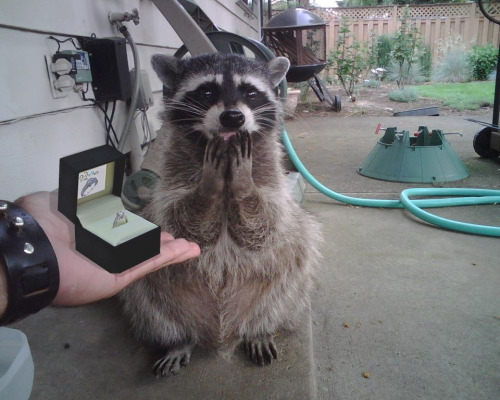Rachael Stephen's Blog, page 8
July 21, 2015
July 19, 2015
sorayachemaly:
zukoscar:
ryncoon:
mousepunker:
the-philosophers-bone:
itrhymeswithalayne:
peopl...
people have no idea what its like to be 14 and have everyone telling you that you’re faking and pretending to be ill for attention or to skip art class and the doctor’s telling you you’re ‘just being a teenager’ when you actually had a serious kidney disease
if someone hadn’t eventually listened to me i would have died
Please, please support self-diagnosed teenagers, don’t pretend they’re not really disabled, don’t belittle or mock them, don’t exclude them from disabled spaces and for the love of god don’t pretend you know more about them than they do
i am disabled to this day because when i was a teenage girl, my doctors didn’t take me seriously. when i said i was in extreme pain, they said i just wasn’t trying hard enough at physical therapy to repair a broken ankle. turns out they’d fucked up the surgery to fix it, and their neglect of my months of complaints meant it was damaged beyond repair. i still have mobility issues 8 years later, will have pain and require surgeries throughout my life and will, always, be disabled. because of them. because of the silencing of girls’ voices, in all spheres. because doctors do not value the voices of teenaged girls.
When I was twelve, the knee specialist I had finally convinced my mom to take me to (after years of begging) told me that my knees hurt because of my hips widening.
“No,” I said. “You don’t understand. I can’t walk when it happens, it hurts so bad. It’s been since I was a little kid.”
“It might twinge a bit, sure,” he told me. “Go to physical therapy for a few weeks.” I burst into tears.
My mom then refused to take me to physical therapy, because it was a long drive and the doctor said it wasn’t serious, so why should she bother? That was the start of her not listening to any complaint about my joints I ever had.
As it turns out, my knees were dislocating every couple of days. She and my doctors ignored and taught me to ignore sprains, fractures, cartilage tears, and dislocations until I moved out and learned that it wasn’t normal. I missed out on years of my life because of my doctor not only discounting the experience of a young girl, but fully blaming my pain on the fact of my being a young girl.
Listen to children when they tell you something is wrong with their bodies.
I had stomach pains for years as a kid. Almost daily. I was blamed as a faker.
I have Celiac.
People know what the hell is going on with their own bodies. If they don’t think something is right fucking listen to them.
In their study, “The Girl Who Cried Pain: A Bias Against Women in the Treatment of Pain,” researchers Diane E. Hoffmann and Anita J. Tarzian documented the degree to which girl’s and women’s pain is routinely dismissed as the “not real,” “emotional,” response of “fragile” females. Not only are girls and women who experience pain less likely to be taken seriously when they describe it, but they are less likely to be treated by medical professionals.
July 16, 2015
badassbonerfarts420:
“video games linked to adhd” gee i wonder why ppl with adhd would be drawn to...
“video games linked to adhd” gee i wonder why ppl with adhd would be drawn to an interactive medium that fully engages your brain and gives your hands something to do at the same time. it is a mystery
Is Coffee Bad For You?
July 15, 2015
jaclcfrost:
“i’m not bitter” i say, bitterly, with a bitter expression
July 14, 2015
North of the End Blurb!
I’ve spent the last week headbutting a brick wall trying to nail Parker, the protagonist of NotE. Now I’ve done it I managed to write the blurb in 0.6 seconds. A little early to be sharing it really, but I’m too excited!Parker is barely surviving a soul-sucking job, her deteriorating relationship with her boyfriend N and missing her estranged best friend Arran to death when the Violet Pandemic devastates Glasgow.
She escapes the city collapsing around her with school friends and nemeses alike. Caught between protecting those beside her, following them to chase a pipe-dream cure, returning to deal with a Violet-infected N and dropping everything to go and find Arran, all Parker wants to do is curl up into a ball and hide under a duvet forever.
But something has changed her, gifted her a strange power and visions of gold. Something is calling her North…
**As always if you want to hear more about North of the End and it’s release, follow here or join the mailing list.**
myobiyuki:
soohighrightmeow:
lehnsherr-xavierr:
prettypunkpurple:
Social anxiety...
Social anxiety level: “mentally rehearsing the word ‘Here!’ over and over before the professor calls your name during roll call”
Social Anxiety level: holding all your money from the moment you walk in the door so when you get in line to pay u don’t have to waste everyone’s time
Social anxiety level: Being done with your test before anyone else but not wanting to get up and walk to the front of class, so you wait until someone else stands up.
Social Anxiety level: Editing the fuck out of everything you say mentally, so that you don’t come off as annoying for saying too much by including unnecessary details no one asked for or care about.
gaywrites:
Coming soon: MyTransHealth, an app connecting trans...

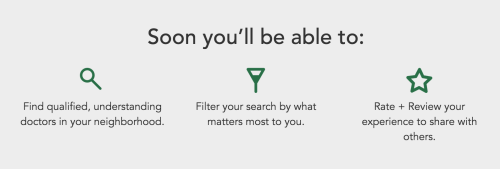
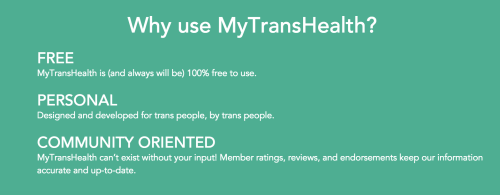
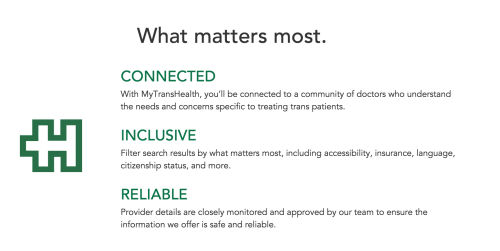
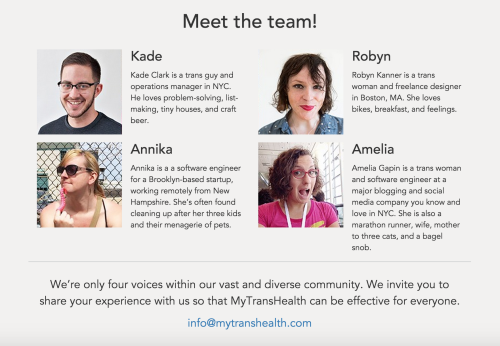
Coming soon: MyTransHealth, an app connecting trans people to knowledgeable, reliable and affordable healthcare providers.19% of trans people have been refused healthcare because of their gender identity. 50% of trans people have had to teach their doctors about trans-related medical care. 28% of trans people have been harassed in medical settings. This app is desperately needed. Follow them at mytranshealth.
July 13, 2015
popthirdworld:
“When I was 26, I went to Indonesia and the Philippines to do research for my first...
“When I was 26, I went to Indonesia and the Philippines to do research for my first book, No Logo.
I had a simple goal: to meet the workers making the clothes and
electronics that my friends and I purchased. And I did. I spent evenings
on concrete floors in squalid dorm rooms where teenage girls—sweet and
giggly—spent their scarce nonworking hours. Eight or even 10 to a room.
They told me stories about not being able to leave their machines to
pee. About bosses who hit. About not having enough money to buy dried
fish to go with their rice.They knew they were being badly exploited—that the garments
they were making were being sold for more than they would make in a
month. One 17-year-old said to me: “We make computers, but we don’t know
how to use them.”So one thing I found slightly jarring was that some of these
same workers wore clothing festooned with knockoff trademarks of the
very multinationals that were responsible for these conditions: Disney
characters or Nike check marks. At one point, I asked a local labor
organizer about this. Wasn’t it strange—a contradiction?It took a very long time for him to understand the question.
When he finally did, he looked at me like I was nuts. You see, for him
and his colleagues, individual consumption wasn’t considered to be in
the realm of politics at all. Power rested not in what you did as one
person, but what you did as many people, as one part of a large,
organized, and focused movement. For him, this meant organizing workers
to go on strike for better conditions, and eventually it meant winning
the right to unionize. What you ate for lunch or happened to be wearing
was of absolutely no concern whatsoever.This was striking to me, because it was the mirror opposite
of my culture back home in Canada. Where I came from, you expressed your
political beliefs—firstly and very often lastly—through personal
lifestyle choices. By loudly proclaiming your vegetarianism. By shopping
fair trade and local and boycotting big, evil brands.These very different understandings of social change came up
again and again a couple of years later, once my book came out. I would
give talks about the need for international protections for the right
to unionize. About the need to change our global trading system so it
didn’t encourage a race to the bottom. And yet at the end of those
talks, the first question from the audience was: “What kind of sneakers
are OK to buy?” “What brands are ethical?” “Where do you buy your
clothes?” “What can I do, as an individual, to change the world?”Fifteen years after I published No Logo, I still
find myself facing very similar questions. These days, I give talks
about how the same economic model that superpowered multinationals to
seek out cheap labor in Indonesia and China also supercharged global
greenhouse-gas emissions. And, invariably, the hand goes up: “Tell me
what I can do as an individual.” Or maybe “as a business owner.”The hard truth is that the answer to the question “What can
I, as an individual, do to stop climate change?” is: nothing. You can’t
do anything. In fact, the very idea that we—as atomized individuals,
even lots of atomized individuals—could play a significant part in
stabilizing the planet’s climate system, or changing the global economy,
is objectively nuts. We can only meet this tremendous challenge
together. As part of a massive and organized global movement.The irony is that people with relatively little power tend
to understand this far better than those with a great deal more power.
The workers I met in Indonesia and the Philippines knew all too well
that governments and corporations did not value their voice or even
their lives as individuals. And because of this, they were driven to act
not only together, but to act on a rather large political canvas. To
try to change the policies in factories that employ thousands of
workers, or in export zones that employ tens of thousands. Or the labor
laws in an entire country of millions. Their sense of individual
powerlessness pushed them to be politically ambitious, to demand
structural changes.In contrast, here in wealthy countries, we are told how
powerful we are as individuals all the time. As consumers. Even
individual activists. And the result is that, despite our power and
privilege, we often end up acting on canvases that are unnecessarily
small—the canvas of our own lifestyle, or maybe our neighborhood or
town. Meanwhile, we abandon the structural changes—the policy and legal
work—to others.”
linrenzo:
jamiejedi:
piksies:
are girls still pretending they don’t masturbate?
I dunno, is...
are girls still pretending they don’t masturbate?
I dunno, is society still teaching girls that anything related to their genitals is dirty and impure?
*chokes on tea*

